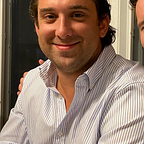Having The Right Mindset for a Technical Interview
What kind of technical interview are we talking about here?
Like other software engineers, when I hear “technical interview” I think about a coding challenge of some sort. Handling a technical question or two about the Internet or benefits of React, and solving some sort of algorithm in a given language. Is that what it means every single time though? I believe that this is not the case.
Technical assessments can be something as informal as a quick question or two from a technical recruiter on an initial phone screening. Or maybe later in the process, when you speak to an engineering manager and they ask you about projects that you have worked on in the past. Those questions posed to you are part of your technical assessment. Being prepared to make sense of what you know, and communicate it clearly is a constant necessity throughout the process of your interview.
I may be as bold to say that the entire interview process for software engineers or other technical roles, is a technical assessment of your knowledge and though process.
How do you prepare?
My opinion, is that constant action is the best way. Constant action, every single day, to make a small amount of progress in your technical aptitude should be your goal at the very least.
Next, what do you want to know? What are the questions you need to answer?
Take some time to critically think about what you know about a few topics of interest:
- What do you know about the ecosystem that is the internet?
- What don’t you know about? Review what you already know, and be curious about what isn’t familiar, and how it pertains to what you do know.
- Are their specific technologies that pertain to the situation (languages, frameworks, libraries, etc.)? What do you know about them? What don’t you know about them?
- What do you want to know more about?
- How do you find the information you are looking for? What are the best sources? Who can you talk to that knows about what you’re researching? Who else is interested in the things you’re interested in?
Take a few minutes to go over these questions pertaining to yourself. Maybe write down your thoughts, think of a couple people that share your interests or curiosity and where you might start researching.
Define your process
Almost as important as constant action, is having a process that is good for you. What does this mean? Well, think about studying for exams in high school or college. How did you study, what is the best way for you to retain information?
Better yet, what are the things you do or don’t do that can benefit you. By this I mean the things that are uncomfortable. For example, writing a blog about your thoughts on a topic even though you’re worried that you might not be 100% accurate. Maybe you’re worried about annoying someone that you want to connect with, and that stops you from reaching out because you don’t know what to say.
These questions will need to be answered by you. Only you can define the process that works best for you. Only you can answer the questions that you have and only you can take the uncomfortable steps that you don’t necessarily want to.
Keep Records
As you answer these questions for yourself, make sure to take note of them along the way. Early in your process, the questions you ask yourself and the answers you find will give you a marker as to the progress you make. Two weeks on, you’ll see that the questions you’re asking are digging deeper. Four weeks in, your process begins to take shape.
As you progress, you start to realize the best learning strategy for yourself. You begin to formulate questions and curiosity about the topics you are researching. You begin to find confidence in the content you create. You begin to provide value to those people that you may have been hesitant to reach out previously.
Keeping records of your daily actions, gives you the opportunity to see the progress that you make. Which is half the battle. If you are similar to me and have completed a bootcamp, or you are freshly graduated from college with a computer science degree — there is no doubt that as some point or another, self-doubt creeps in. Keeping records of allows you to push that self-doubt away as you see the progress you make over time.
Conclusion
Getting the first interview is the difficult part without a doubt. However, getting the interview and not being confident in your preparation is the only roadblock between you and that job you want.
Taking constant action, recording your actions and being brave enough to step out of your comfort zone will reinforce the confidence in your preparation. So, develop some questions you want to answer. Think about what you know and don’t know and how you can improve on these topics. Take time to understand your process. Stick to your process, refine and improve that process consistently and remember to celebrate little wins.
I’m doing that today, putting myself out there in terms of how I approach technical interviews. I struggle, like many others, in the confidence in my content. Constantly worrying about whether or not it will be worth the time to read for someone, or even that you the reader may take something beneficial away.
My hope is that with this simple blog, I’ve taken a step forward in improving and refining my process. This is the first start of my daily action for the day, perfecting my process and preparing for the next technical assessment.
